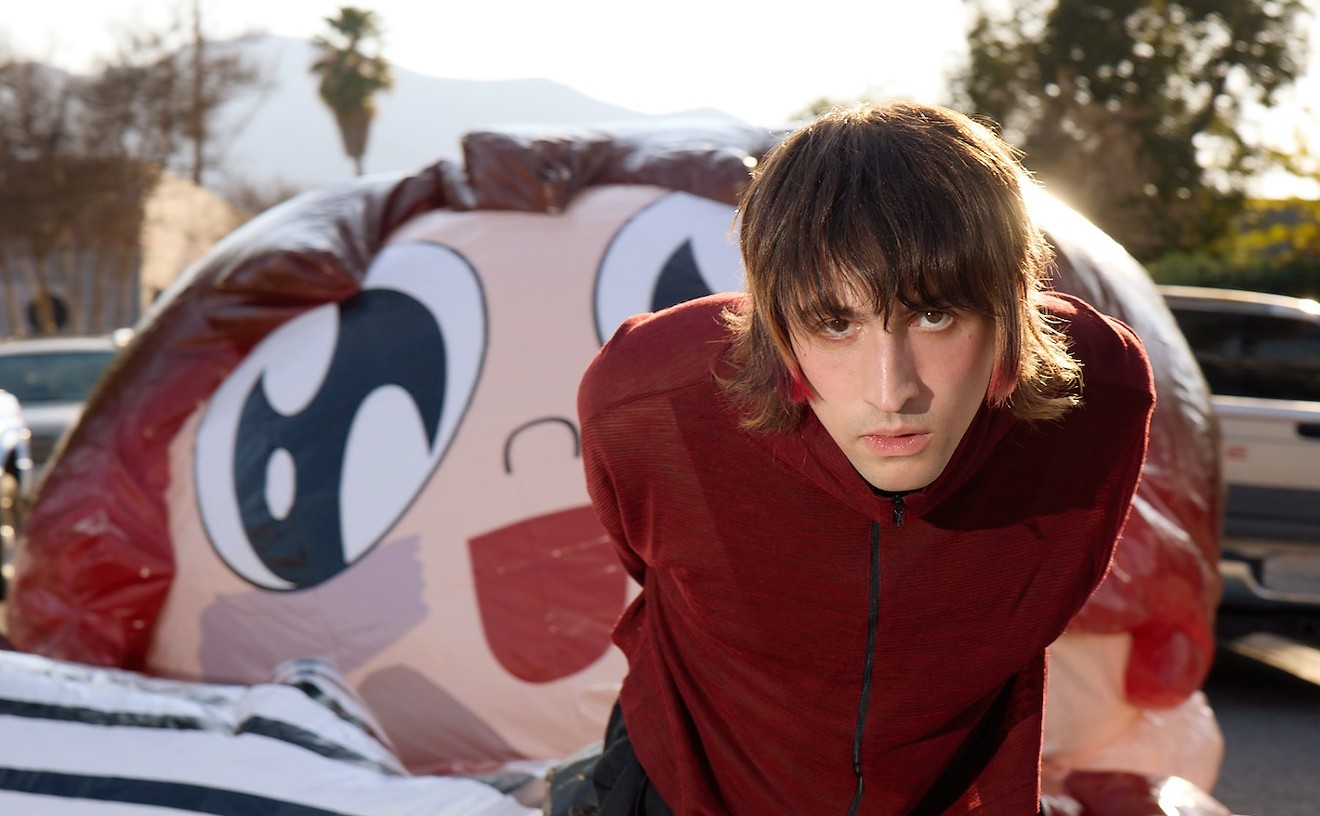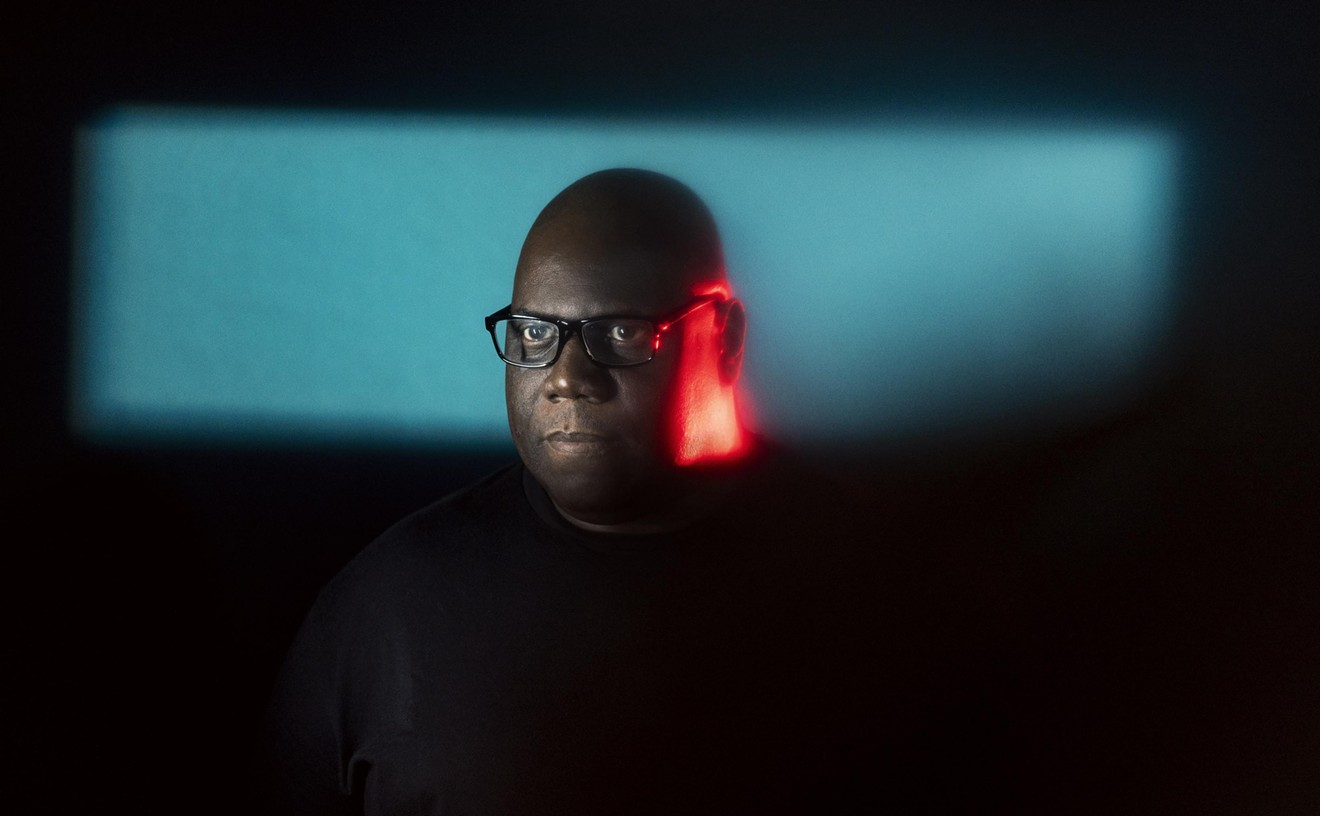Or maybe drugs were responsible for all that.
In any case, this nation of tweakers and trainspotters went digital, replacing drum breaks and amplified instruments with tricky programmed beats and synthesized flourishes. They made music that veered between uptempo and downtempo. For England's rave generation, it was all about partying in a frenzy, then soothing frazzled synapses with slow, cool sounds.
Maybe it was inevitable that a few Brits would reclassify dub as electronica, that nebulous amalgam of trip-hop, breakbeat, and ambient lounge music occupied by everyone from soul revisionists Massive Attack to eclectic beat-tweakers Funky Porcini. Sure the rest of the world considered it to be a part of reggae, the legacy of King Tubby and his protégés, launched from sound systems and subwoofer stacks in sunny old Jamaica. But to "rolling" robo-ravers, dub was simply the sum of its parts: soul-plumbing bass licks and lots of groovy synth and guitar echoes, tottering along at barely 80 beats per minute. Whether produced by Bunny Lee or Tricky it was morning-after music that took pride in studio stunts -- and therefore was of a piece with the electronica that every other London bedroom DJ seemed to be making at the time.
This produced results that were in some ways analogous to the late Seventies "Rockers" era, when punk acts like Killing Joke and PiL took a shine to reggae and turned out an array of hit-and-miss hybrids (as compiled on Select Cuts' compelling Wild Dub series). The Rockers era fizzled out before establishing a sustainable sound, though, because there were too many differences between the two cultures. Ultimately it all came off as so much posing, barring one genuine masterpiece in the Clash's Sandinista!
But in many ways dub and electronica really do seem compatible -- as evidenced by Germany's Pole and America's Thievery Corporation and J. Boogie's Dubtronic Science. These "dubtronica" acts blend the former's elastic bass lines and leisurely pace with hip-hop's drum patterns and samba's sexy vocal cadences -- and, above all, a desire to transcend source material and sound original.
But part of the credit for the rise of "dubtronica" must also go to Adrian Sherwood, a producer (and former member of Tackhead) who in 1980 founded On-U Sound, a label that doubled as a bridge between British reggae's mostly white fans and its mostly black creators. Combining a collector's obsession with visionary studio skills and management and marketing panache, Sherwood oversaw dozens of important releases by Bim Sherman, Prince Far I, Deadley Headley, and New Age Steppers featuring a young Neneh Cherry. These recordings utilized dub culture's signature bass and reverb and expanded its sound through tempo shifts and lyrical and instrumental patterns inspired by soul, rock, and world music.
Today, a revitalized On-U Sound is reissuing a steady stream of dub plates. These include Murder Tone, Dub Syndicate's latest collaboration with Lee "Scratch" Perry; and African Head Charge's acoustic, brain-squeezing Shrunken Head. Perry, like other prominent Jamaican producers and musicians, maintains ties to the British scene precisely for its intrepid inventiveness. And although hot new producers like Birmingham's Groove Corporation are retooling the genre with some even bigger beats and wider-ranging tempos, their affection for it seems sincere, unlike punk rock's earlier reggae affectations.
G Corp's latest, Dub Plates From the Elephant House Vol. Two (Different Drummer), is dedicated to the late Bim Sherman. Songs like the incendiary "Fireman," with its spaced-out, one drop beat and lovely melodica melody, would sound right at home on an Augustus Pablo record. Despite its cheeky title, "I Left My Tart in Sad Frank's Disco" also has a classic feel, with falsetto vocal snippets accenting a churning beat and groovy sax lines, all of them washing up against each other like waves on a sandy white beach.
G Corp has a knack for tension-and-release song structures, and between gaping pauses it piles on lots of growls, sticky synths, and beats that clang, clack, and splash. But some of the cuts are built on an electronica framework. "Daylight," a chugging groove with a delicate keyboard melody, scratched vocal samples, and the sound of chirping birds, is a simple breakbeat that sounds like a Ninja Tune release from the mid-Nineties. Then there are a few tracks that mix both genres like "Clever," which blends dub and trip-hop in its use of snippets from answering machine messages. Apparently since financial recession and permanent brain damage have popped England's mega-rave bubble, tracks that slink along at 90-120 beats per minute are back in favor.
Today's dub and electronica connection, then, seems to be the beginning of a beautiful friendship -- more like ska's common-law marriage with Sixties funk than rocksteady's fiery fling with punk. So break out the champagne; you've got the soundtrack.










